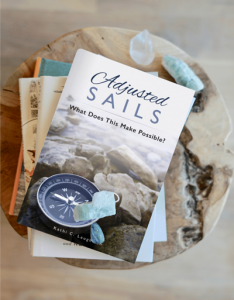No, I am not crazy. I do realize that on the 1700’s, they did not blog. There was no Internet, no vehicle from which to instantly publish ideas and thoughts about the world.
In a way though, the idea of blogging did exist. Done differently, sans technology used today, they did indeed have their own way of heralding information and ideas.
Samuel Johnson, the English author, biographer and critic was someone I would consider an early “blogger”. One of his formats (other than books and publishing his highly regarded “Dictionary of the English Language”) was the publication of pamphlets. Short essays on topics of the day and ideas about whatever was on his mind became his literary platform. Through this printed medium, he also invited others to be “guest” authors (guest bloggers?) and later compiled and published these writings under his work entitled “Rambler”. It contains both his work and that of those guest writers. Rather like taking a series of articles or blog posts and publishing them as a book today. I found this to be an extraordinary example of how authors have always functioned, individually and as a community.
It may seem on the surface that things have simply become easier and they have in almost all aspects. Because we do not have to wait any longer for type-setters and printers and for ink to dry and for papers to be hand-carried and delivered we are able to spread our message with lightening speed. We are able to share our thoughts and ideas almost instantly. And because we now have so much information to process, we cannot afford the same level of verbosity. The reader’s attention span has decreased rather than increased as a direct result of so much information being available. That means we must craft our messages quickly, concisely and effectively for them to be heard.
In studying Samuel Johnson and going through some of the essays, I came across this statement, which I found to be a wonderful description of what authors do:
“The task of an author is, either to teach what is not known, or to recommend known truths by his manner of adorning them; either to let new light in upon the mind, and open new scenes to the prospect, or to vary the dress and situation of common objects, so as to give them fresh grace and more powerful attractions, to spread such flowers over the regions through which the intellect has already made its progress, as may tempt it to return, and take a second view of things hastily passed over, or negligently regarded.”
Today, not many would fully absorb this or understand the essence of it. Here is how we might craft this thought today:
“The two most engaging powers of an author are to make new things familiar and familiar things new.”
It is interesting that the distilling of the thing is sometimes what reveals its truth. Sometimes the real power of writing lies in the editing. Rather like life.







